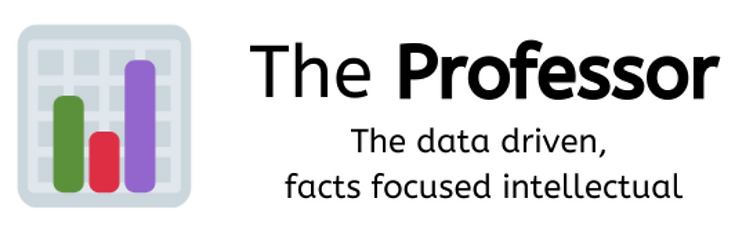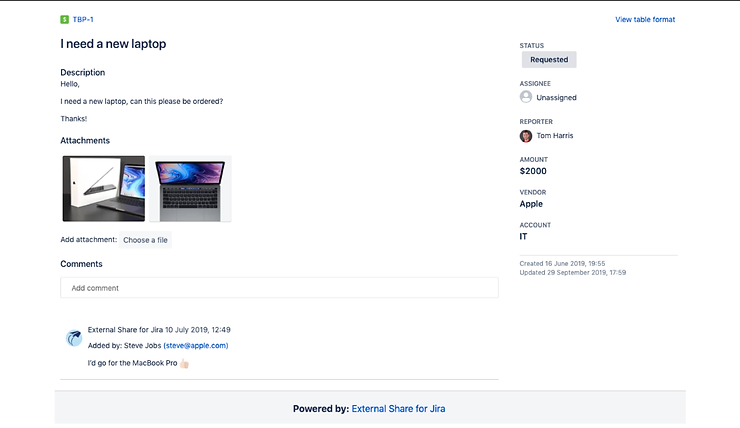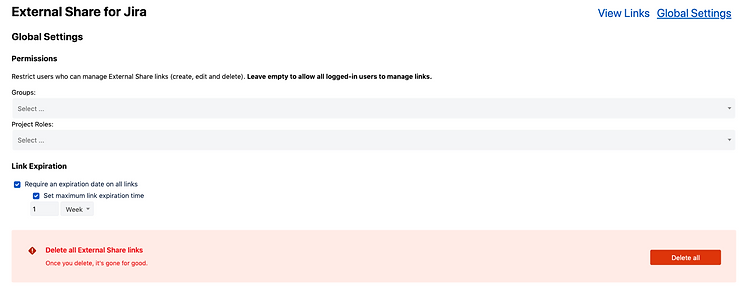Community resources
Community resources
Community resources
- Community
- Q&A
- Confluence
- Articles
- Collaborating and Communicating Better in Confluence
Collaborating and Communicating Better in Confluence
They say if you want to go fast, go alone, but if you want to go far, go together, and teamwork is Confluence and Jira’s raison d’etre.
"The days of the lone genius are long gone, now productivity and innovation lie in the hands of skilled teams that can effectively collaborate to create the future." – Atlassian Teamwork Blog
Teamwork, the competitive edge
What is the greatest proof that you have a cohesive team culture? Your level of productivity!
Working with teammates is complicated enough, but people are increasingly collaborating with people outside the immediate team. Suppliers, customers, contractors, consultants, and even inter-departmental projects or collaboration with sister companies all require increasingly effective communication.
That’s why we made External Share for Jira and Confluence Cloud, Server, and Data Center. So you can share individual issues and pages, with whomever you want to collaborate with, without giving them full access to your Jira or Confluence.
Understanding the 4 key communication styles that work best with the 4 different types of people will help you to engage more effectively, and in tandem with External Share for Jira and Confluence, will make communication and your teams’ lives easier. (Read more here: 4 communication styles and how to navigate them in the workplace).
First, you’ll need to know which type of communicator each person is. We’re not talking about the superficial “getting to know someone” (e.g. how many kids they have). We are talking about the psychology of personality types and more effective communication with them.
The Different Personality Types
Most humans are vastly different, but they all have one thing in common; needs. We all have a need to be understood, loved. A need for certainty, variety, significance, connection, growth, and contribution unites us all.
The approach we take to meet those needs is how we differ. The Social Styles body of research states that there are 4 main ways in which people achieve their needs and communicate:
1) The Challenger (aka Driver)

As the name suggests, Challengers are comfortable with conflict. They can be assertive in times of uncertainty. They are focused on results, reaching outcomes and maintaining control. Challengers are often leaders of organizations, and flexible in adjusting to the market with ease and confidence.
Working with Challengers:
Don’t give too much detail. When sharing external content with them, use the “less is more” approach. Instead, package the information in bite-size chunks. Give them just enough information to make the key decision or take the required action. Make it clear and concise, so it’s quick and easy for them to respond.
With External Share for Jira or Confluence, it’s possible to share individual issues, or single pages at a time. This means you’re only sharing the bite-sized chunks Challengers crave.
2) The Professor (AKA The Analytic)

The Professors are people who enjoy detail, facts, and require time to digest and process things. These people are data-driven and make decisions intellectually. They prefer research over relationships. Data over drama. Facts over feelings.
How to work with Professors?
To engage with a Professor, you need to follow the OPPOSITE approach than with the Challenger. This person requires detail, descriptions, and the time and space to review, reflect, and read more options before responding.
If you were sharing a Jira issue or Confluence page with a Professor, be sure to set the expiry date late enough to give them time so they may review before commenting. Also, consider you may need to extend the expiry date, so they have time to fact find in comfort.

3) The Poet (aka The Creative)

Poets are usually very adept at creative thinking and artistic ventures. They see the world in a different light to most people and have ideas that are often ahead of their time.
How to work with Poets?
Poets sometimes get lost in the chaos of their creativity and can miss certain things. When communicating with them, make sure you add/send a reminder a few days later, to catch them at a time when they’re not buried in creative energy.
They’ll also benefit from the ability to add comments and attach images to the Jira issues and Confluence pages you share, even without access to your Jira.

This should let them express and share their talents with your team.
4) The Networker (aka Socialiser)

The Networkers are your classic people’s persons. Whenever there is a crowd, the Networkers are usually in the middle of the action. They enjoy small chat, laughter and networking with new and different people. The party doesn’t start until they enter the room.
How to work with Networkers?
Your Networkers are people-centric, so make sure your content speaks to that. Don’t send them a bland external page to review. They might categorise your content as irrelevant. Instead, give them context, the human impact and they will be engaged.
It’s also important to make sure a Networker doesn’t share your Jira issues with everyone! External Share has strict controls so that admins can control who can share what, and for how long.

It’s always possible to see what issues or pages have been shared, and if in doubt, turn them off, or even delete them!
What about the tech?
Now that you understand your people better. It’s time to use the right tool to enhance your communication further. External Share for Jira and External Share for Confluence can change the way you communicate by sharing secure, password-protected, and fully customizable links to your Jira issues with anyone.
Click here to see a demo of how External Share for Jira and Confluence improves visibility, collaboration, and communication with Challengers, Professors, Poets and Networkers.
Was this helpful?
Thanks!
Chris Cooke Old Street Apps
About this author
CEO
Old Street Solutions
London, UK
3 accepted answers
0 comments